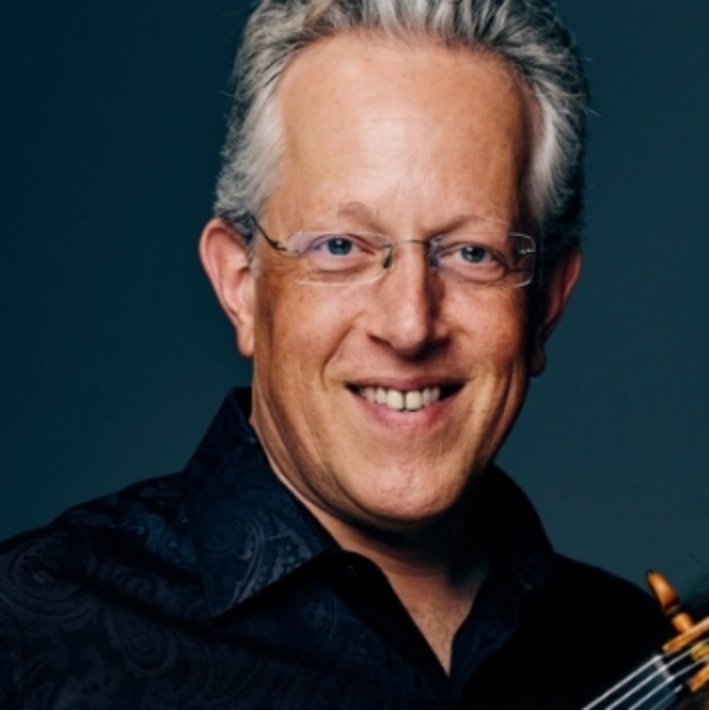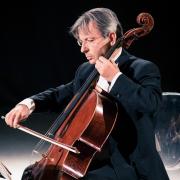A French Connection in the Rockies
A preview by Betsy Schwarm
Ah, the best laid plans of mice and men – and musicians! Invite a French-based string ensemble to Denver for a concert in 2020 with the Colorado Chamber Players: COVID intervenes. Reschedule the program for the spring of 2024: one of the Colorado-based performers suffers a hand injury and won’t be able to perform. Alter the programming to work with available musicians and forge ahead. The third time is the charm!
The French-based ensemble is the Stanislas Quartet(Quatuor Stanislas), named for Stanislas Leszczinsky, 18thcentury king of Poland and the last Duke of Lorraine. His French base was in Nancy (that’s ‘NAAHN-sse’), where his palace still stands. The Stanislas Quartet is also located there.
However, it was not in Nancy that the partnership with the Colorado Chamber Players originated. In the early ‘90s, two CCP regulars – violinist John Fadial and cellist Beth Vanderborgh – had competed successfully in a regional event in the DC area, thereby coming to the attention of Emily Porter, an audience member who was visiting DC from her home in Nancy. Struck by how much the playing of Fadial and Vanderborgh reminded her of her favorite quartet back in Nancy, Porter broached the idea of them blending with Stanislas to perform and record the Brahms string sextets. The match was made!
As Fadial remarks, “chamber groups tend to form as like-minded musicians gravitate toward one another. In our case we had Emily as our catalyst.” Vanderborgh adds, “as a whole, the group has tremendous empathy for each other. From the first day we me, we have enjoyed marvelous music making.”
Jean de Spengler, cellist with Stanislas, underscores how well six performers from two different continents can work together. “It’s much easier to put together a permanent string quartet and a duet already formed like that of John and Beth. Of course, we always manage long enough periods of rehearsals before playing together, and it was always very easy to understand each other.” The association has become a gathering of friends, not just of colleagues.
Three late April performances are set for Denver, Laramie, and Sheridan, Wyoming (details follow). The program includes Debussy’s only string quartet, to be performed by the Stanislas Quartet, as well as string sextets by Richard Strauss and by Dvořák. The sextets are also those composers’ only ventures into the genre. Thus, the entire program features rare works by famous names, all representing different visions of late Romanticism.
The only holdover from the original version of the program, Debussy’s String Quartet, dates from 1878. Still in his teens, one already finds him moving away from the dominant Austro-Germanic approaches in chamber music. Don’t call it ‘Impressionist:’ Debussy himself detested that term. However, at the time, its progressive open harmonies would have marked the composer as a forward-thinker.
Both string sextets are scored for pairs of violins and violas and cellos. One cannot just add Vanderborgh as an additional cellist and Fadial as an additional violin to an existing string quartet. Fortunately, Fadial also plays viola, as does one of his French counterparts, violinist Laurent Causse. For each of the sextets, one of them will set aside his violin in favor of viola. As Fadial observes, “Playing viola is not so different from playing the violin, and a sensitive musician will work within the sound world of the instrument upon which they play. Over the years I have greatly enjoyed inhabiting both worlds.”
Dvořák’s Sextet in A major, op. 48, dates from 1878, and featured the rhythms and colors of folk music from his Czech heritage. These energies become especially distinct in graceful second movement Dumka and the nimble third movement Furiant.
As for Richard Strauss, his Sextet is the prelude to his 1943 opera Capriccio. The opera concerns an aristocratic lady and her two admirers: one a poet, the other a musician. They debate which art form is best for expressing human emotion. As Fadial observes, Strauss “makes a pretty strong case for his own avocation.” At the time of Capriccio’s composition, the composer still lived in his native Germany, even in that turbulent time of war and politics. One can readily imagine that the Sextet’s Romantic sensibilities were for Strauss a source of comforting nostalgia: the “World of Yesterday,” as his colleague Stefan Zweig called it.
The Quatuor Stanislas, together with members of the Colorado Chamber Players, will give three performances of this French Connection program. One will be in Denver, and two at academic institutions in Wyoming.
Friday, April 26 at 7pm at First Universalist Church,
4101 East Hampden 80222, Denver.
Sunday 04/28 at 4pm at Sheridan College, Wyoming
Monday 04/29 at 7pm at University of Wyoming, Laramie, Recital Hall at the Buchanan Center for the Fine Arts. More information on Laramie performance: bvanderb@uwyo.edu
A ticket purchase link for the Denver performance is located here:
For Sheridan:https://www.sheridan.edu/events/cochamberplayers-quatuor-stanislas/
The program in all three venues will be as follows:
Debussy Quartet (Quatuor Stanislas): Laurent Causse and Rémy Chopinez (violins) Paul Fenton (viola) Jean de Spengler (cello)
Richard Strauss Capriccio Sextet
Dvorak A major Sextet, op 48
Two usually prominent CCP names do not appear in that listing. Barbara Hamilton, violist/director with the Colorado Chamber Players, will be taking time off for hand surgery this spring. Violinist Paul Primus is stepping aside, too, in solidarity with his wife. Hamilton hopes to be back to playing in late fall 2024. In the meantime, Vanderborgh and Fadial, two of Colorado Chamber Players’ Rocky Mountain regulars, will join with the visiting Stanislas Quartet, for a program likely to keep audiences diverted with this French connection to the Rockies.
*****
[word count: 993 words]













